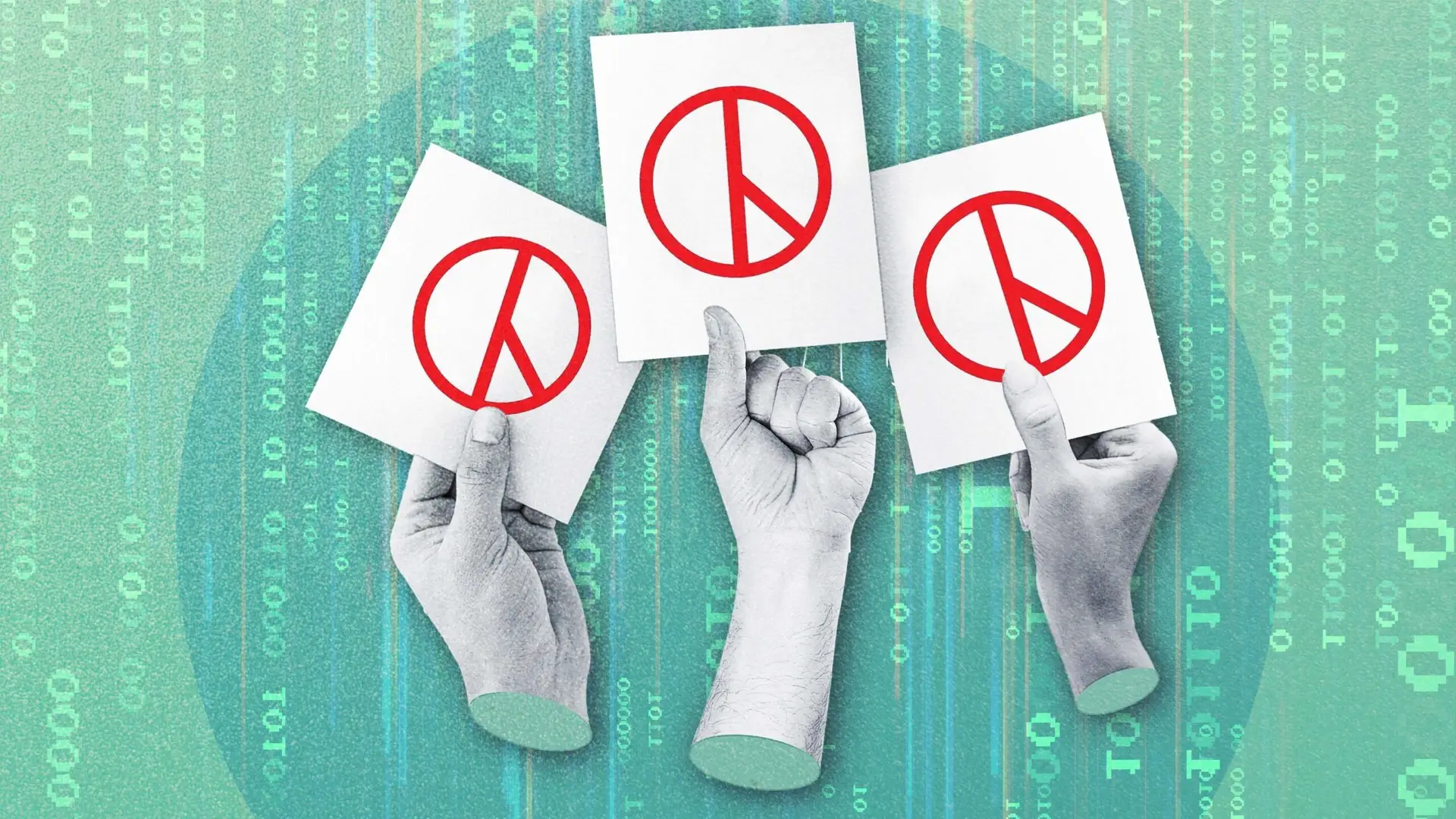In December of last year, South Korea amended the Public Official Election Act to safeguard the nation from potential harm that artificial intelligence might pose to upcoming elections.
The newly instituted Article 82-8 of the law states, “No one may produce, edit, distribute, screen, or post deepfake videos for election campaigning purposes from 90 days before election day to election day itself.” This prohibition took effect on January 29.
Furthermore, in preparation for the parliamentary elections on April 10, the National Election Commission (NEC) expanded its special response team for false information to include an AI detector team.
A week has passed since the elections concluded. The Readable has compiled public data released by government agencies that played a crucial role in safeguarding the integrity of the elections. Kuksung Nam and Minkyung Shin contributed to this report.
Election campaigning deepfakes
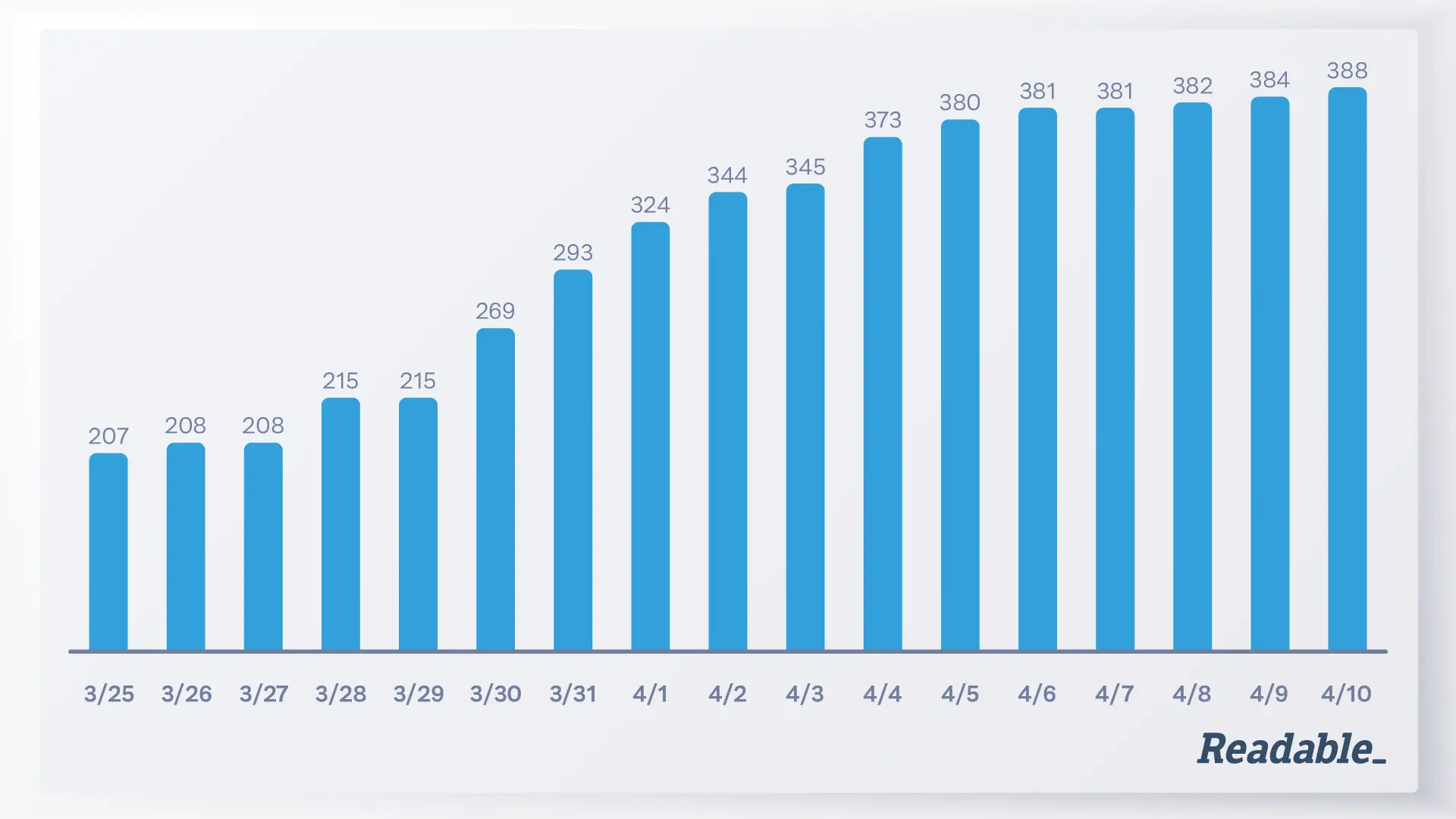
The spread of false information
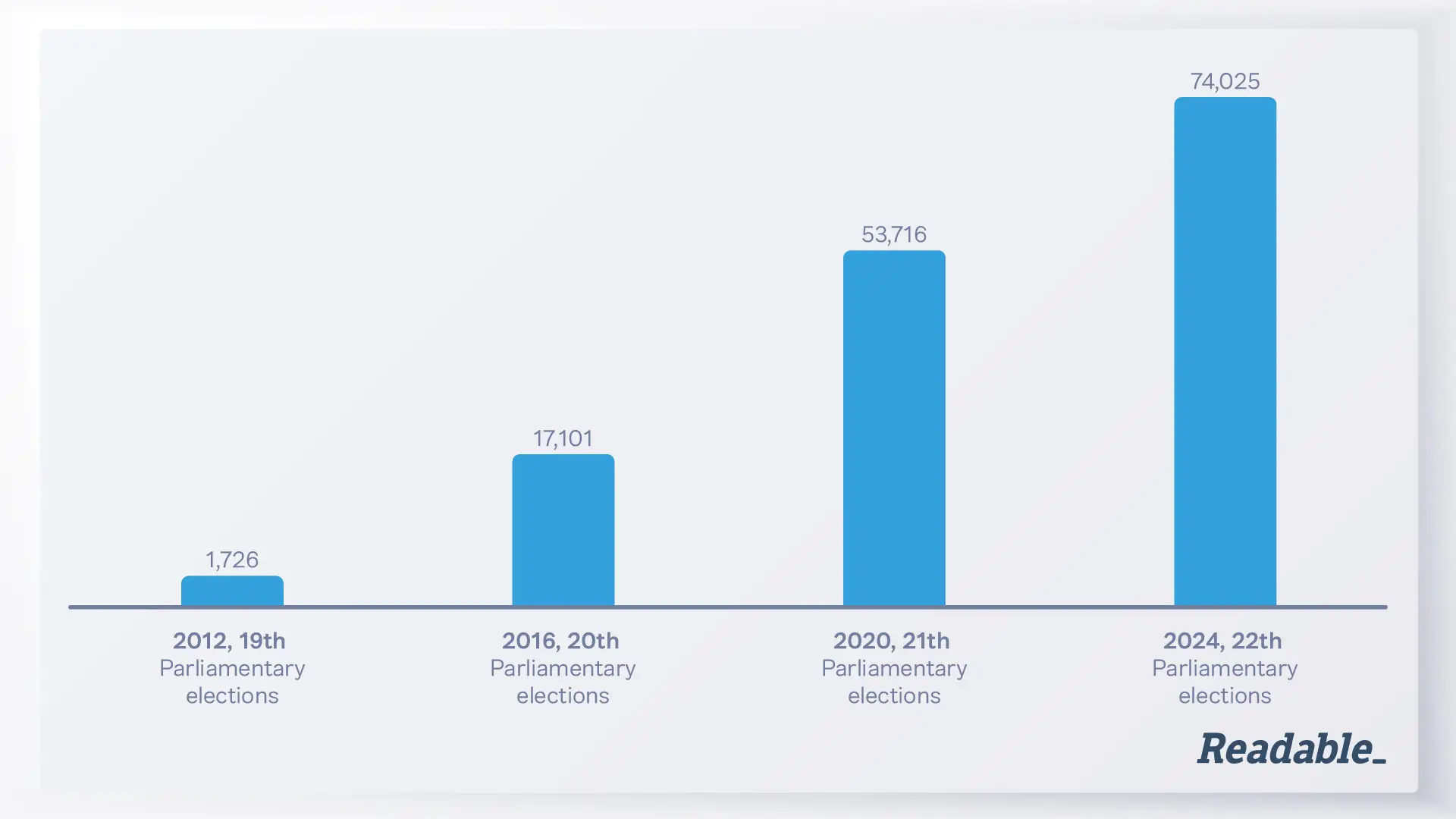
Election crimes: Data provided by Supreme Prosecutors’ Office
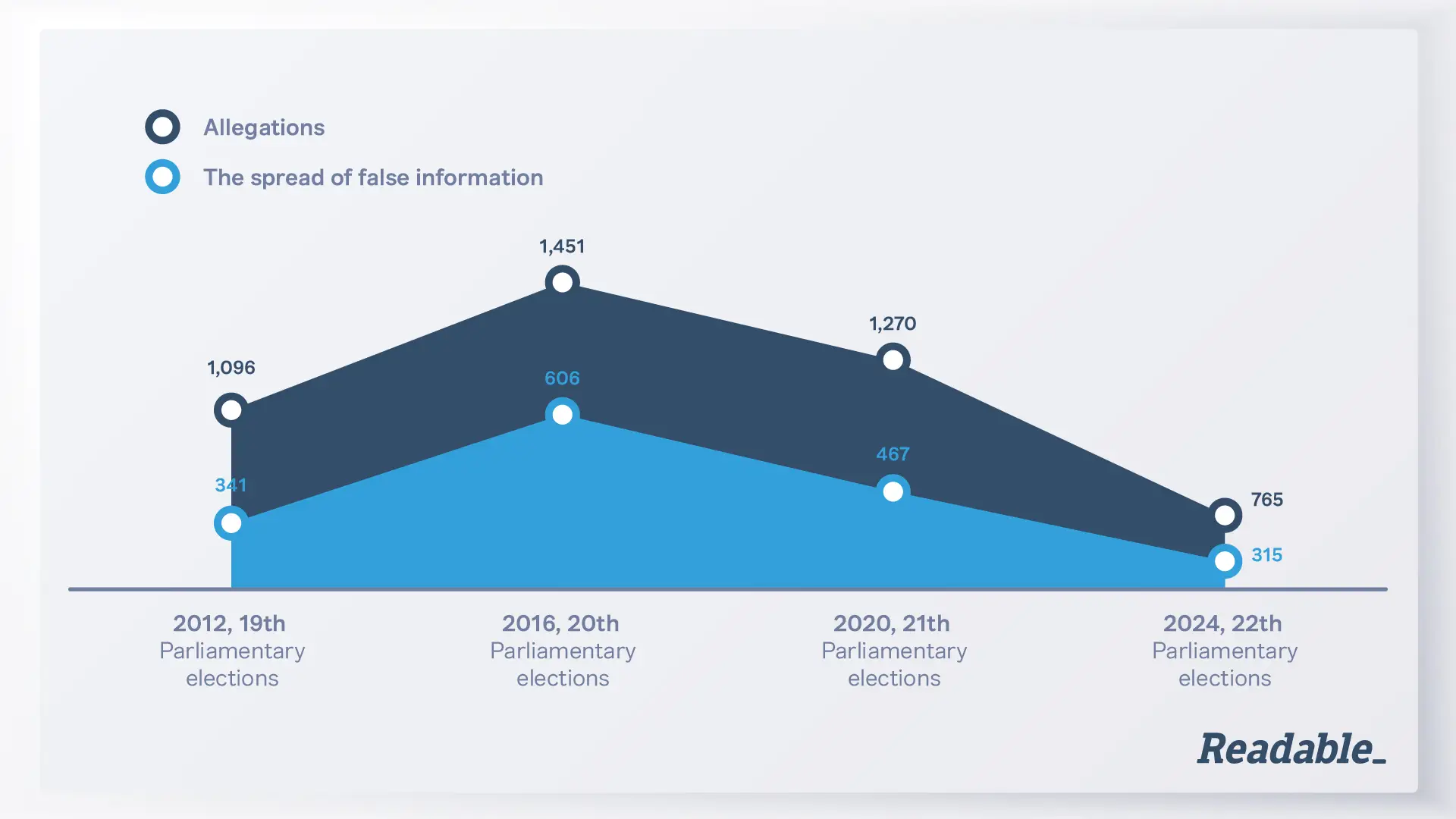
Election crimes: Data provided by Korean National Police Agency
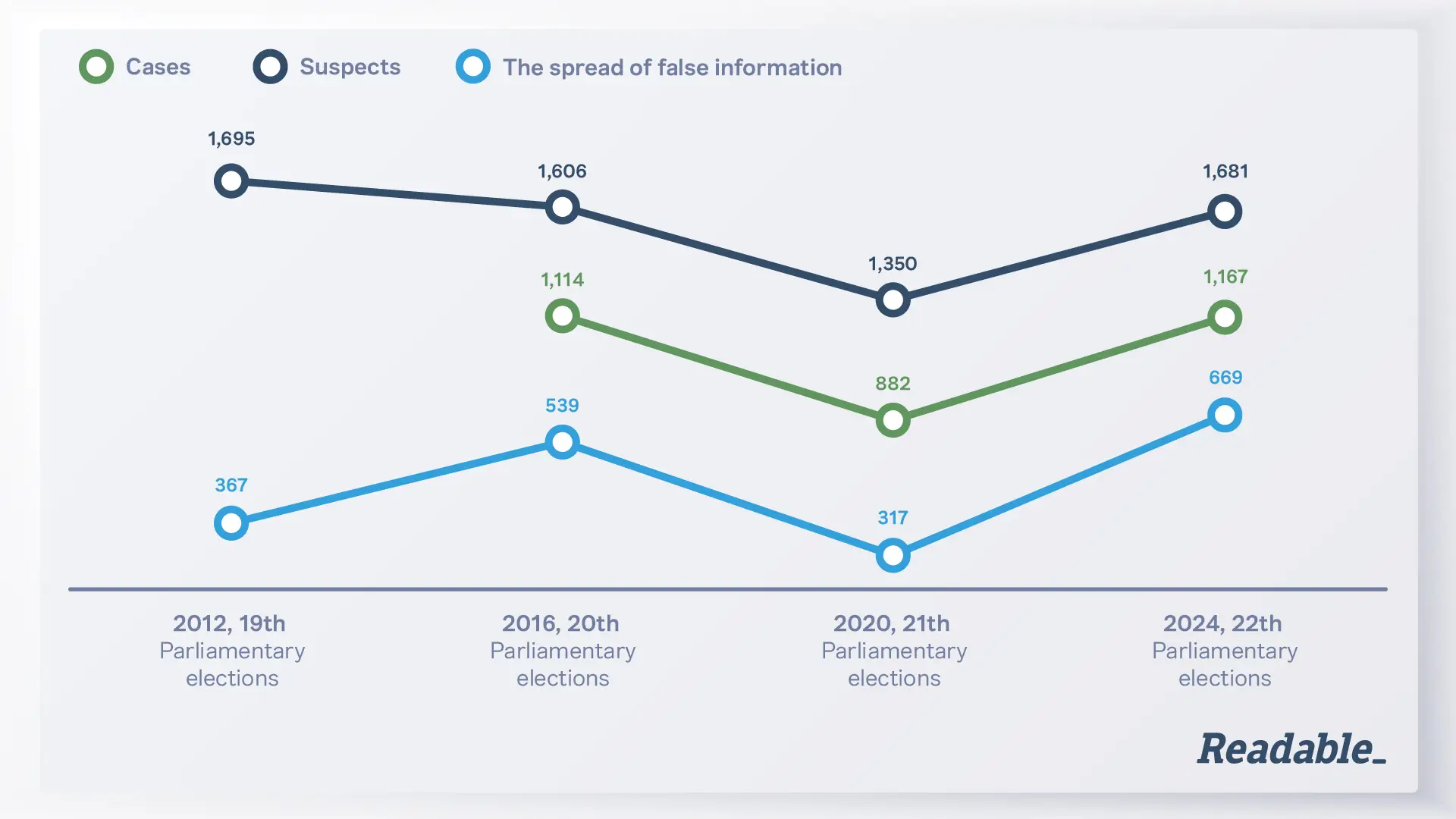
Related articles:
- [Apr. 11, 2024] Election Commission identifies over 72,000 instances of misinformation about candidates
- [Apr. 8, 2024] AI-driven Chinese influence campaigns target elections across Korea, US, India, experts warn
- [Apr. 9, 2024] Rise in fake news as South Korean elections draw near
- [Mar. 20, 2024] Transparency: Ireland’s strategy to safeguard elections in the AI era
- [Mar. 5, 2024] South Korean police to fight deepfakes ahead of general election
- [Feb. 1, 2024] South Korean President warns of North Korea’s interference in April election
- [Jan. 31, 2024] Security outlook 2024: AI, Election, the Paris Olympics
- [Jan. 25, 2024] South Korea reinspects election security prior to general election
- [Dec. 7, 2023] South Korea should beware of North Korea’s interference in 2024 election, expert stressed
- [Oct. 10, 2023] North Korea hacked South Korea’s electoral regulator, intelligence agency reveals
